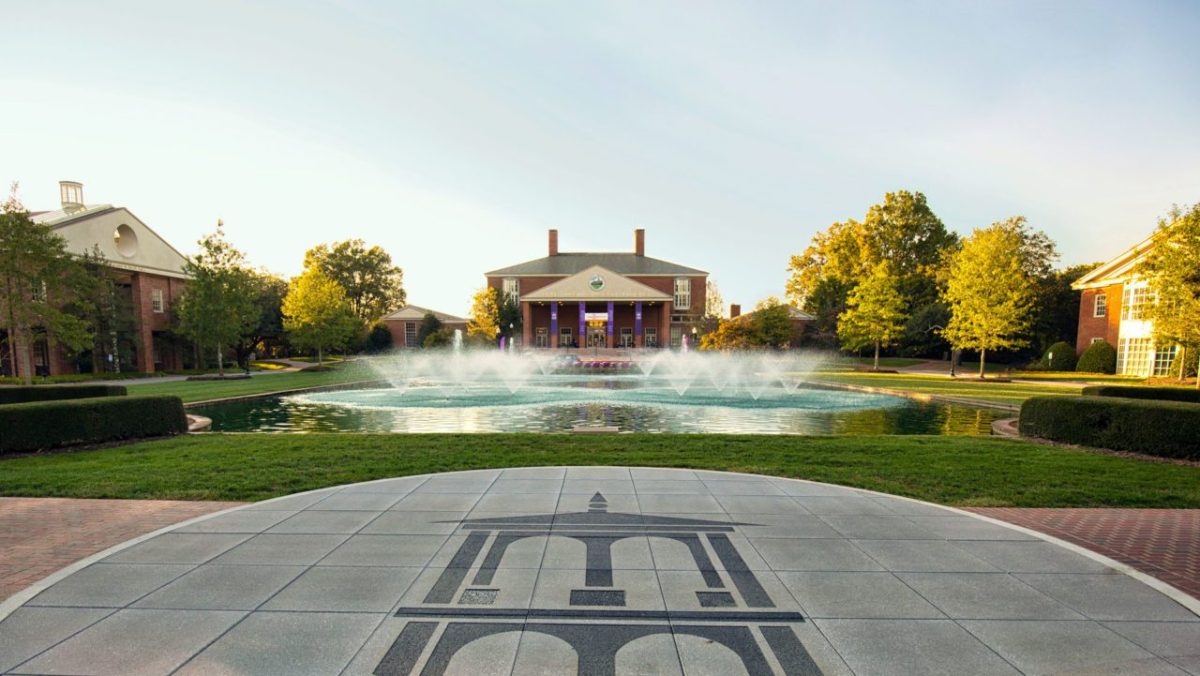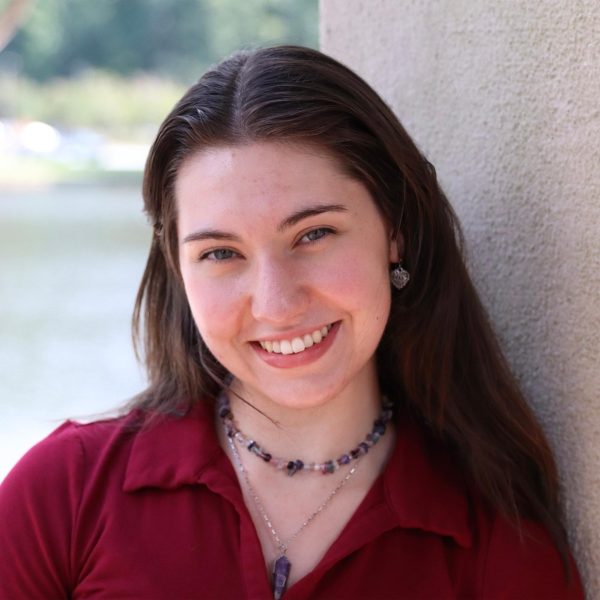The Paladin is not offering an opinion of the conflict in Israel and Gaza. The ideas and perspectives reported in this article are those of the students and faculty interviewed by The Paladin.
Since the attack by Hamas on Oct. 7 and Israel’s ongoing violent response, college campuses have acted as hubs of discussion on the war. As Israel-Gaza discourse has manifested in various ways at universities across the nation, The Paladin sought to determine how Furman students are conversing about the issue.
Dr. Akan Malici, a professor in the Politics and International Affairs department, said that students have what he calls “minimal knowledge, if any, about the conflict,” but said they are willing to change that. Malici is teaching a new class called “The Arab-Israeli Conflict” in the spring.
“I observe that all students that I taught about this are very open to perspectives they had not encountered, and that they are really interested in this, and want to know more,” Malici said. “In my classrooms, I haven’t felt any polarization. In my classes, I felt simply academic interest.”
A Politics and International Affairs major and member of the Middle Eastern and North African club has noticed a different trend among students. They wish to remain anonymous due to the sensitive nature of the issue.
“I feel that the majority sentiment is what it has always been: ‘I don’t know a lot about it, so I won’t make a comment’ or the occasional ‘I don’t really do politics,’” the source said. “Ignorance is bliss, and I think a vast majority of this campus is blissfully ignorant.”
Fifth-year student Paige Lau ‘23 reported that even though students have become divided over the conflict, discourse on campus has generally remained respectful.
“I’ve certainly seen some very heated conversations, even friendships breaking up over it,” Lau said. “But in none of those cases have I heard about anybody being severely, straightforwardly disrespectful, not listening whatsoever, which I think it’s something we should be proud of, and I hope that that is true for others as well.”
Amidst the ongoing war, Muslim and Jewish Americans have experienced rises in hate crimes. US college campuses have also seen that rise. Discourse about the conflict has led to hate speech and acts of aggression toward Muslim and Jewish students, and activism has turned to violence between protesting groups, according to NBC News. More information on the rise in hate crimes against these groups in America can be found on the Southern Poverty Law Center website.
At Furman, demonstrations have been comparatively peaceful.
Steven Raney ‘25 is the co-chair of Furman’s Young Democratic Socialists of America chapter. The organization has engaged in pro-Palestine protests in Greenville, and joined in on events put on by the Muslim Student Association and MENA, such as a vigil for lost lives in Gaza.
“I think there’s a recency bias, because this is happening now, we kind of feel the need to tiptoe around it, as if it’s an issue that should be or deserves to be controversial at all,” Raney said. “But ultimately, I don’t think that’s going to come from classes, I think that kind of change and the discussion is gonna have to come from the bottom up with students talking about it outside of class, agitating around it.”
Raney has also collaborated with members of various student organizations to draft an open letter to the administration based on conversations with other club members, which has garnered signatures from multiple student organizations. It includes a resolution for administration to “formally distance the university from pro-Israel statements and release an official statement unequivocally recognizing and denouncing the Israeli genocide.”
Raney has sensed students with different views have been quieter.
“I haven’t seen pro-Israel people going out of their way to stage demonstrations, or hold teachings or anything like that, or write pieces for The Paladin,” Raney said. “It’s such a hegemonic perspective, I don’t think they probably feel the need to go out of their way to publicize a point of view on it. I would assume they haven’t felt suppressed in any way, because that’s just the reality.”
Malici suggests that there are a few reasons students from different groups may be afraid to publicly voice their viewpoints on campus.
“I did hear from a Jewish student fear of rising antisemitism. I did hear from Muslim students concern about not being heard about (students’) default sympathies (for Israel) becoming acute sympathies,” Malici said.
The Paladin spoke to sources from the Jewish Student Association and MSA, both of whom wish to remain anonymous.
The source from JSA expressed that many members have not spoken publicly about the conflict because they fear that students would assume all Jewish students share one ideology.
“A lot of people are going to confuse being on the side of Jewish people with being pro-Israel,” the source said. “The Jewish Student Association and like the 20 people who are active in it, every single one of them has a different belief about how these conflicts should be resolved.”
The source from the MSA expressed a similar fear of being assumed to hold a certain ideology.
“I’m generally not comfortable sharing about it, just because it’s a really heavy topic for me,” an anonymous member of MSA said. “There’s just so many consequences that come with people who will be like, ‘Well, do you support terrorism?’ And I’m like, ‘No, I just don’t want my people to die.’ I shouldn’t have to explain that.”
History professor Dr. Tuğçe Kayaal discourages students from having a “very binarized and misleading interpretation” of the conflict.
She expressed that these events are rooted in settler colonialism, meaning that the war is political. Thus, she feels it is unfair to conflate a student’s ethnicity or religion with a certain stance on the issue.
“You cannot read this as a conflict or war between Muslims and Jews, or Israel and Palestine,” Kayaal said. “You cannot treat two parties as the equal parties, and you cannot associate Jewish citizens with the Israeli state, necessarily, and Palestinians with Hamas, because there are so many political actors, so many other organizations.”
JSA and MSA members have taken issue with Furman administration’s actions in response to Hamas’ attack. They cite a lack of support and understanding from administrative bodies as another reason for fearing to speak out more often.
In a meeting she called with MSA members to listen to their perspectives, President Elizabeth Davis told students that any pro-Hamas statements they made would be condemned by the university.
“I don’t know why she felt the need to say that to us. Even though none of us were talking about (Hamas),” the source said. “We were literally sharing our stories with her because she asked.”
An MSA member wrote an email to President Davis following the conversation, asking if pro-Israel statements would be also be condemned by the University.
“Let me clarify my position on making statements,” President Davis stated in the email. “I want to uplift the humanity of each member of our community and acknowledge the loss of life that affects those among us. What is not acceptable are statements that are discriminatory or elicit acts of violence against others.”
President Davis responded to The Paladin’s request for comment on the exchange.
“Any statement that calls for or celebrates violence would be condemned. It wasn’t my intention to single out any group,” President Davis stated via email. That’s why I responded more broadly with my position on making statements.”
The source from JSA said organization members were dissatisfied with an email sent by Dr. Vaughn CroweTipton, the Associate Vice President for Spiritual Life, to the Furman community on Oct. 12 in response to the events of Oct. 7.
The source reports that CroweTipton reached out to JSA with a rough draft of the email. It included the statement, “As you know, on Saturday, Israel was violently attacked by the terrorist group known as Hamas.” However, in the email sent to the student body, the statement was revised to say, “As you know, on Saturday, years of conflict erupted into war.”
“I think (the statement) fueled antisemitic stereotypes and beliefs that Jews do not like Palestinians and want to actually take their land and treat them terribly. And that was a thing that we gave the university’s chaplain an earful about,” the JSA member said. “Since that, we’ve been more wary of working with (the administration) in general, because we don’t feel the same support that we thought we did.”
Since the initial statement from CroweTipton, the Furman community has not received any new emails from administration about the ongoing violence. The anonymous Politics major and MENA member feels that more communication and support from higher-ups is necessary.
“I think their involvement and support on this issue are lacking, and they are simply staying silent until something major occurs that fully affects them,” the source said. “The silencing of students and faculty is something I am worried about since I have seen a common theme of it on campuses like Harvard’s and Columbia’s.”
As students continue to face hurdles when speaking publicly about these issues, Malici attempts to open a safe space for students to become more informed about the issue and express their beliefs.
“I have reached out to the Jewish Student Association and invited them to come meet. I teach this, I study this, I write about this, they can ask anything they want. And one of them came by yesterday, and we had a good discussion,” Malici said. “I think this is where the real level is: the organic level.”
CroweTipton did not immediately respond to The Paladin’s request for comment for this article.
Our goal is for our reporting to encourage informed, civil, and respectful discussion of this issue. We invite members of the Furman community to share their perspectives with us through Letters to the Editor.
Correction, Nov. 16: In an earlier version of this article, one of Steven Raney’s quotes did not include his characterization of why he has not noticed much pro-Israel activism on campus. This version was updated with a longer quote that explains his view that the pro-Israel stance is a “hegemonic perspective.” This version was also updated to reflect that he was one of many collaborators that worked to draft an open letter to the administration.





































